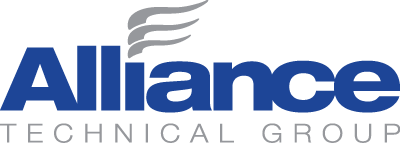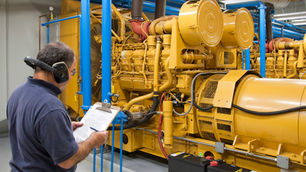Services / On-Site Testing / Source Testing / Engine Testing

Engine Testing
Precision Engine Testing for Regulatory Compliance and Performance Assurance
Ensure your engines meet EPA and state regulatory standards with expert testing, accurate emissions data, and trusted field-to-lab capabilities.

Engine Testing Services
Engines | Turbines | Enclosed Combustors | Heaters | Generators
Tests Conducted
-
NSPS JJJJ
-
NESHAP ZZZZ
-
NSPS KKKK
-
NSPS OOOOb
-
TAC 106.512
-
TAC 117
-
TAC NRSP
-
NMED Periodic
-
WY Portable Analyzer
-
CO Portable Analyzer
-
Green House Gases
-
Methane
-
Permit Specific
-
Spot Checking
-
Research and Development
-
Data Centers
-
Renewable Energy Sources
Test Methods
-
EPA Reference Methods 1, 2, 3A, 4, 5, 7E, 10, 19, 25A 320
-
ASTM D6348 & ASTM D6522
-
GPA 2261
-
State of Colorado Portable Analyzer Monitoring Protocol
-
State of Wyoming Air Quality Division Portable Analyzer Monitoring Protocol
-
WY DEQ Division of Air Quality FTIR Stack Testing Guidance
Test Process
-
Emissions Testing Compliance Strategy and Planning
-
Creation and Submittal of Pre-Test Notifications
-
Design of Custom Test Protocols
-
FTIR Data Validation
-
On-Site, Real-Time Results
-
Electronic Report Hosting and 24/7 Portal Access
-
ISNetworld, Veriforce and TPS Alert Compliant
6-3-1 Process
Our keystone service offering — this process describes the weekly cadence of pre-testing communication during which we coordinate details, conduct research, and prepare protocols to ensure a successful testing experience.
Here's the rundown on our proven pre- to post-testing process that involves precise coordination and communication to ensure the best testing results.
From start to finish, we stay in constant communication. Learn what happens at the major milestone stages of 6 weeks, 3 weeks and 1 week prior to testing.The 6-3-1 Process
6 Weeks Prior: Preparation
Alliance will email test week details to pertinent parties to request information that is unknown and address questions about permit research that has been completed. We hold ourselves accountable to every last detail, because every detail matters.
The following week we will prepare any testing notifications or protocols required by the regulatory agency(s) and continue our communication with pertinent parties.
Expect our background work and 1:1 communications to continue until mid-way through the process when we will begin sharing details on how testing will be conducted.3 Weeks Prior: Verification
Successful stack testing takes a team approach. Getting the right information to the right people at the right time is our strength. Communicating what’s needed upfront saves time, improves quality and builds camaraderie, ensuring all parties feel connected and informed.
At this stage, the full plan begins to come together - from the big picture to the small details. No guesses, no assumptions. We validate the facts and communicate them to ensure everyone involved understands exactly what’s needed, because no two stack tests are the same.1 Week Prior: Confirmation
One week prior to testing day, the Alliance Testing Technician will communicate directly with the customer site contact to confirm the meetup and kickoff schedule for the onsite testing. Additional emails with test week details will be sent to all pertinent parties to ensure there are no surprises. And, if there is a need to adjust to new information or emergent insights, we will adapt accordingly, keeping everyone informed along the way.
OGI (Optical Gas Imaging)
Alliance Technical Group offers industry-leading OGI services backed by a seasoned team, robust data systems, and a commitment to quality. Whether you operate upstream, midstream, or downstream, our nationwide team delivers high-performance leak detection where and when it matters most.
OGI is a flexible solution ideal for diverse industrial sectors and applications:
Upstream: well pads, offshore rigs, crude storage
Midstream: pipelines, gas terminals, compressor stations
Downstream: refineries, above-ground storage tanks
Other Sectors: gas utilities, biogas plants, landfills, mining, semiconductor manufacturing
OGI is also effective for detecting emissions from compressor rod packing systems, which are a common source of methane leaks in reciprocating engines. By visualizing and pinpointing these leaks in real time, operators can take corrective action before emissions exceed regulatory thresholds or impact equipment performance.
Oil & Gas Labs
Alliance delivers fast, flexible testing and analysis solutions for the oil and gas industry.
We provide comprehensive sampling and analytical services across every stage of energy extraction, transportation, and product delivery. From field collection to advanced laboratory testing, our team ensures accurate, on-time results you can rely on.

“At Alliance, we pride ourselves on being the largest engine testing company in the U.S., backed by the most expansive network of mobile laboratories. Our deep bench of subject matter experts ensures unparalleled expertise in every project. Through advanced software and a full suite of services—including labs, consulting, LDAR, and OGI—we streamline testing and support the evolving needs of the Oil & Gas industry.”
Mike O'Brien
Vice President, Oil & Gas




